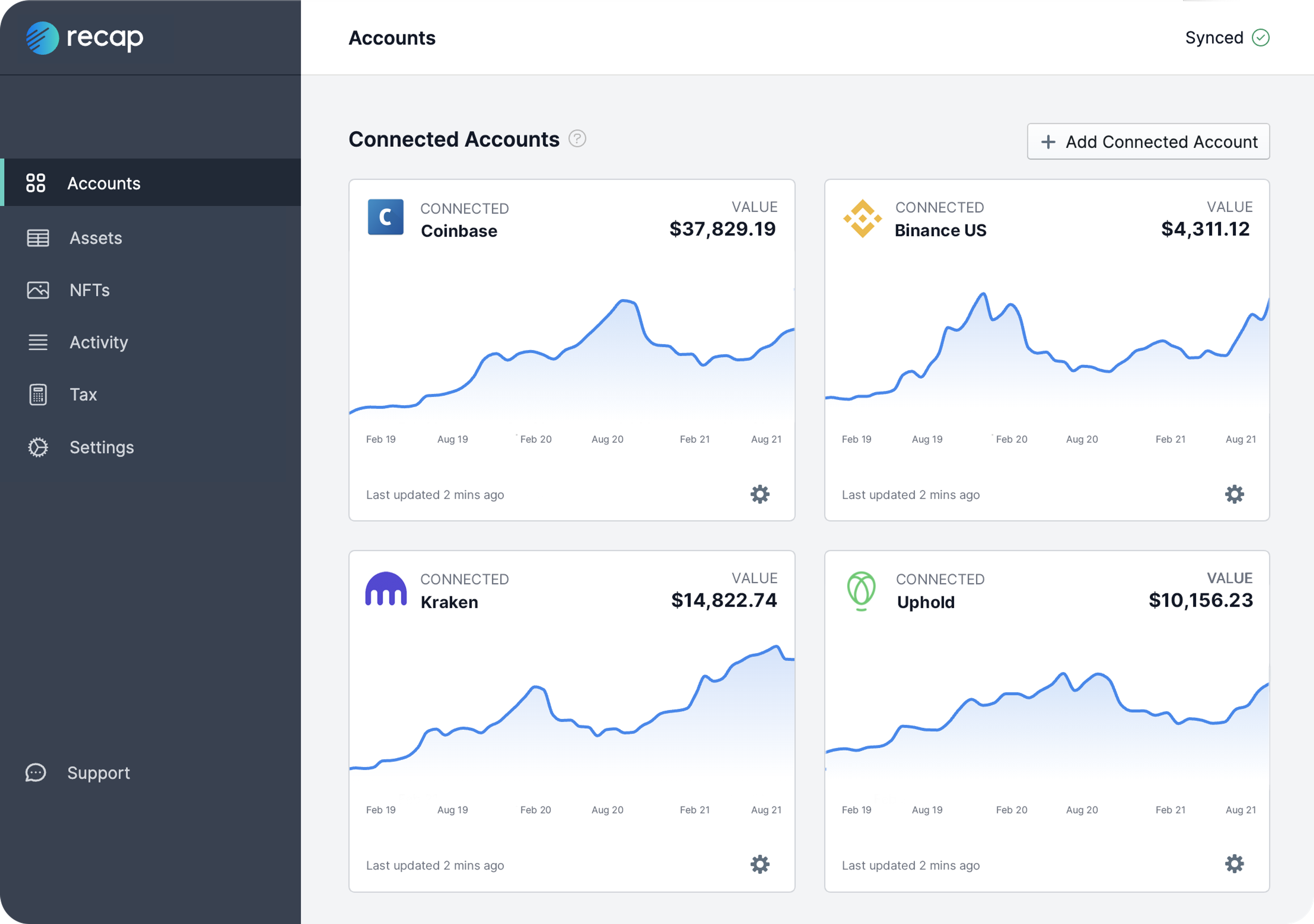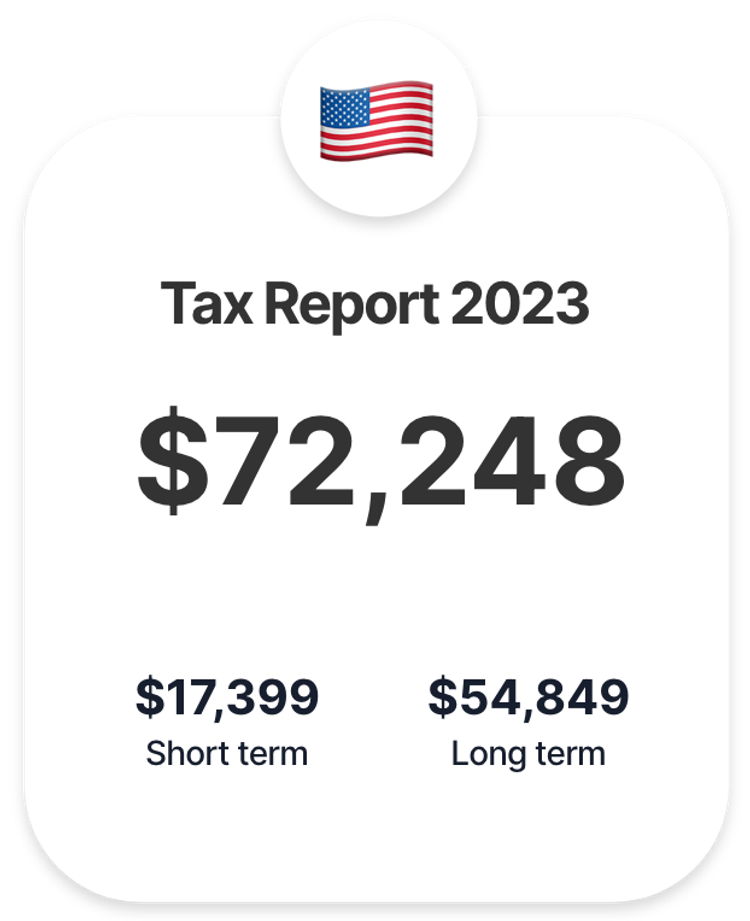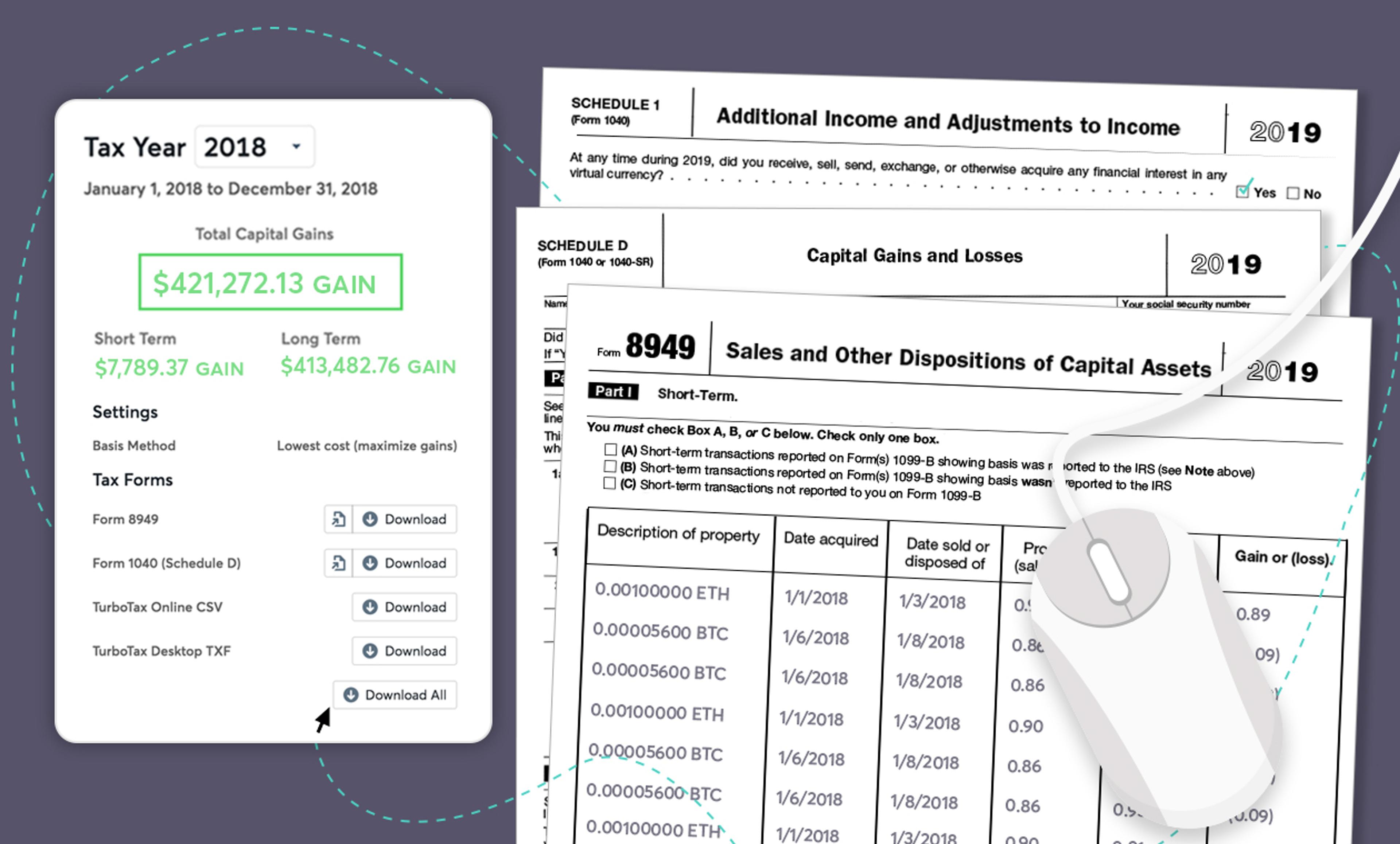





Crypto tax software for US taxpayers

Explore why Recap is the trusted choice for crypto investors and crypto tax professionals
CRYPTO PORTFOLIO TRACKER
Track your entire crypto portfolio in one place
Recap is more than just crypto tax software. See the true value of your crypto portfolio with real-time tracking of your crypto investments.
One view of all your crypto accounts
Track all of your historical cryptocurrency transactions and crypto assets
See your entire crypto worth in USD
Analyse the performance of your crypto to plan and optimise future investments



CRYPTO TAX SOFTWARE
Automatically calculate your crypto tax report
Simply import your crypto trading history and Recap instantly calculates your capital gains and income taxes.
Compliant with the latest IRS guidance
Preview your capital gains for free
Automatically generate IRS FORM 1040 and FORM 8949
Securely share your data with your accountant and delegate filing



US crypto tax guides
Browse our US focused guides to demystify the complexities of crypto tax without the confusing jargon.
HOW IT WORKS
Crypto tax made simple
Recap makes it easy to calculate and stay on top of your crypto taxes.
- 1
Import your transactions and calculate your crypto taxes with ease whether your trading, earning DeFi rewards or collecting NFTs!
Real-time API sync for major exchanges like Coinbase, Kraken and Binance
On-chain support for Ethereum, Binance Smart Chain and Polygon wallets
CSV import for all other accounts
- 2
- 3
FAQs


































